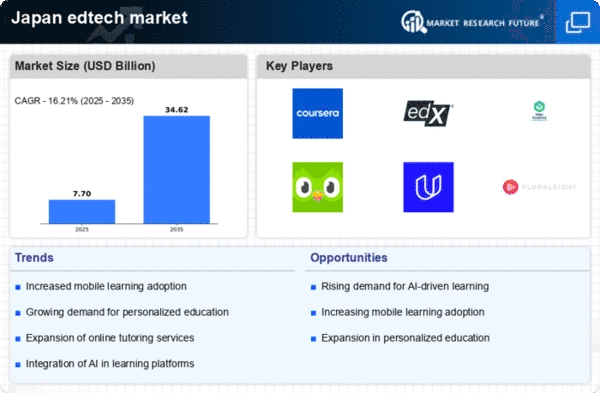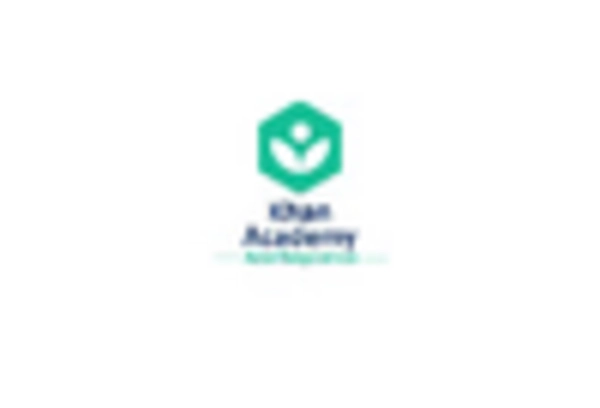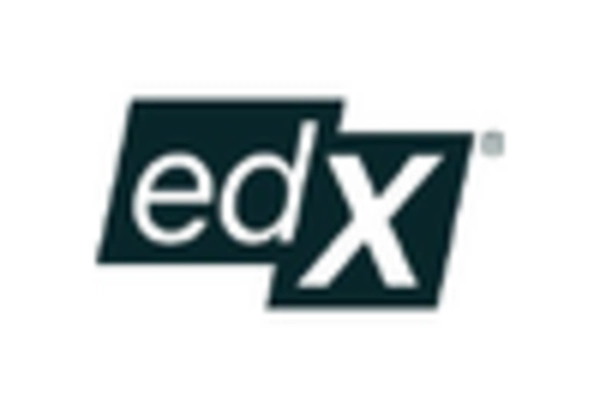Emphasis on Lifelong Learning
The concept of lifelong learning is gaining traction in Japan, significantly impacting the edtech market. As the workforce ages and industries evolve, there is a growing recognition of the need for continuous education. This shift is prompting individuals to seek out learning opportunities beyond traditional schooling. Data indicates that participation in adult education programs has increased by approximately 25% in recent years. Edtech companies are capitalizing on this trend by developing platforms that cater to adult learners, offering flexible and accessible learning options. This emphasis on lifelong learning is likely to sustain growth in the edtech market, as more individuals pursue education throughout their lives.
Shift Towards Remote Learning Solutions
The edtech market in Japan is witnessing a notable shift towards remote learning solutions. This transition is driven by the increasing demand for flexible learning environments that accommodate diverse student needs. Educational institutions are adopting online platforms to facilitate learning outside traditional classroom settings. Data suggests that the adoption of remote learning tools has increased by approximately 40% among universities and colleges in Japan. This trend is likely to continue as more institutions recognize the benefits of hybrid learning models. Consequently, the edtech market is evolving to include a wider array of remote learning solutions, catering to both educators and learners.
Technological Advancements in Education
The edtech market in Japan is experiencing a surge due to rapid technological advancements. Innovations such as artificial intelligence, machine learning, and augmented reality are transforming traditional educational methods. These technologies enable personalized learning experiences, catering to individual student needs. For instance, AI-driven platforms can analyze student performance data to tailor educational content, enhancing engagement and retention. The integration of these technologies is projected to increase the market's value significantly, with estimates suggesting a growth rate of approximately 15% annually. This trend indicates a strong demand for innovative solutions that can improve educational outcomes, thereby driving the edtech market forward.
Growing Demand for Skill Development Programs
There is a burgeoning demand for skill development programs within the edtech market in Japan. As the job market evolves, individuals are seeking educational resources that equip them with relevant skills. This trend is particularly evident in sectors such as technology, where continuous learning is essential. Reports indicate that online courses focusing on coding, data analysis, and digital marketing have seen enrollment increases of over 50% in recent years. Educational institutions and edtech companies are responding by offering targeted programs that align with industry needs. This focus on skill development is likely to drive further growth in the edtech market, as learners prioritize practical knowledge and competencies.
Increased Investment in Educational Technology
Investment in the edtech market in Japan is on the rise, reflecting a growing recognition of the importance of technology in education. Both private and public sectors are channeling funds into developing and implementing educational technologies. Reports indicate that venture capital investments in Japanese edtech startups have increased by over 30% in recent years. This influx of capital is facilitating the creation of new platforms and tools that enhance learning experiences. Furthermore, educational institutions are allocating larger budgets for technology integration, which is likely to further stimulate growth in the edtech market. As a result, the landscape is becoming increasingly competitive, with numerous players vying for market share.
















